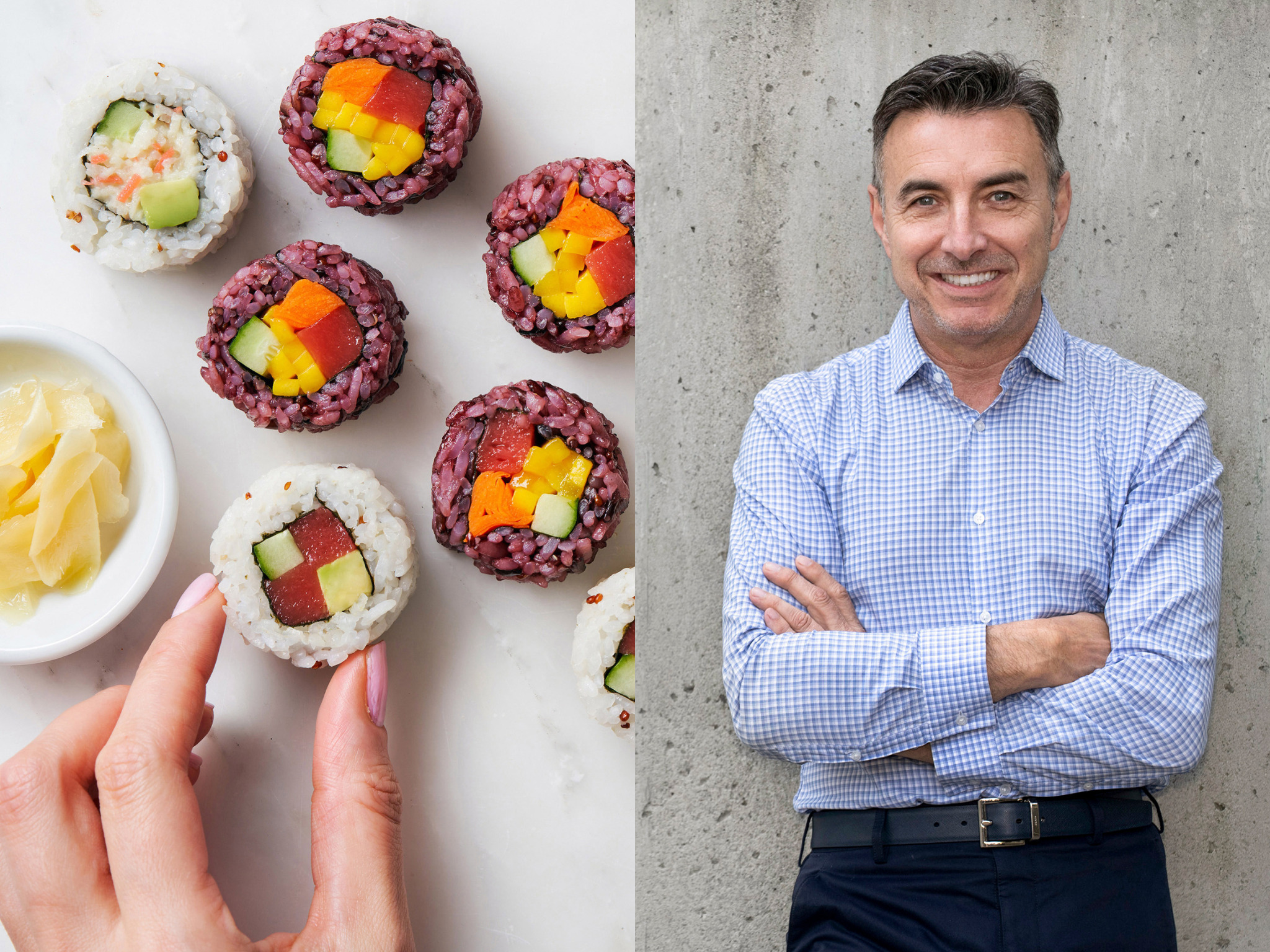Vegan Sushi Revolution: Konscious Foods CEO Yves Potvin on Disrupting Plant-Based Seafood
6 Mins Read
Konscious Foods founder and president Yves Potvin talks to Green Queen about microwaving frozen sushi, plant-based meat’s challenges, consumer reception of its rolls, poke bowls and onigiri, and creating new vegan seafood analogues.
People in Vancouver search for sushi more than anyone else in the world if you’re to go by Google Trends data. In fact, Canadians top the list in terms of the share of the population (5.7%) looking for sushi on Google, followed closely by the US (3.4%) – though the latter has the most searches in absolute numbers. Japan comes third.
Sushi is incredibly popular in North America – and it’s no longer confined to high-end restaurants charging hundreds of dollars. You can get sushi in your grocery store. And who says supermarket sushi is bad? Not Americans, who drove a 72% rise in sushi sales at US retailers over the past year. US retail giant Kroger, which has been selling the dish since 1990, is now the largest sushi seller in the country.
It’s this success that Konscious Foods – the Vancouver-based brand by French chef Yves Potvin – is banking on. Launched in 2021, the company makes frozen vegan sushi, onigiri and poke bowls, using seafood analogues like plant-based tuna, salmon and snow crab.
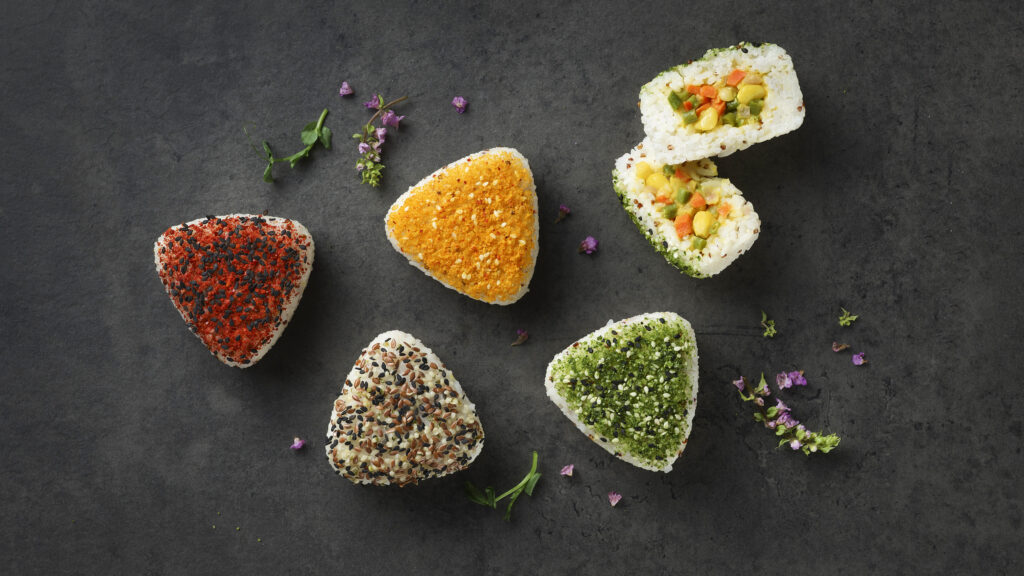
Standing out from the crowd
The meat alternatives sector has undergone a period of turmoil over the last couple of years, with sales falling, workers being laid off, and companies shutting down. Potvin compares this to the proliferation of cars in the early 20th century, and the dot-com bubble in the late 90s “where everyone had an idea”, when the rapid growth of the Internet led to a stock market boom. “Dreaming is important,” he agrees, “but so is the bottom line. At some point, you need to show investors a return on their investment.”
He adds: “At the end of the day, knowing how to run a business and having the know-how in this industry is still very important.” And he certainly does possess the knowledge and experience – Potvin is the man behind established plant-based businesses in Gardein and Yves Veggie Cuisine.
According to the Good Food Institute, plant-based meat unit sales dropped by 8%, but vegan seafood saw a 40% year-on-year growth in pound sales last year. The sector has been a hub of activity recently, with product launches like South Korean startup Unlimeat‘s upcycled tuna analogue, Singapore-based HAPPIEE‘s vegan shrimp and squid in the UK, and Revo Foods‘ 3D-printed whole-cut salmon in Austria.
It’s becoming an increasingly crowded space – how does Konscious Foods plan to stand out? The freezer. Even in the conventional space, frozen sushi is still quite a niche market. In the plant-based sphere, Konscious Foods’ offering is the first of its kind. “Shelf life is very important – sushi and poke bowls otherwise must be eaten pretty immediately upon purchase to ensure safety,” explains Potvin. “Really, frozen food offers convenience.” And convenience is what Americans want, with 61% citing it as a purchase driver in one survey – up from 56% last year.
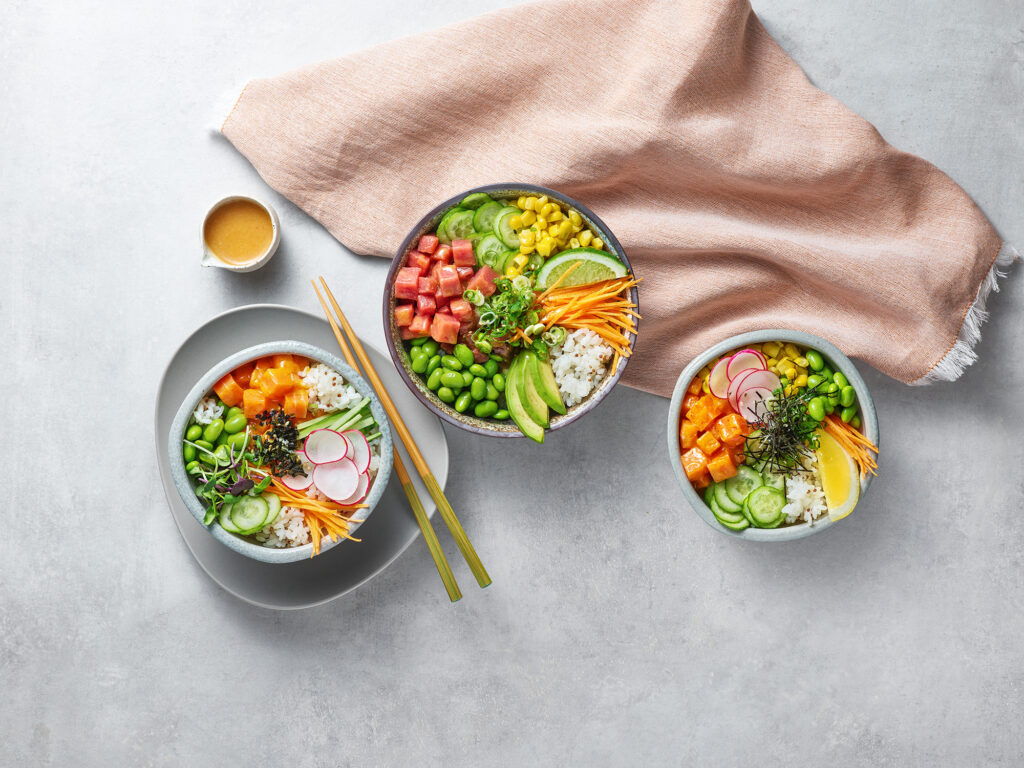
The importance of frozen
So which consumers fit this convenience bill? “Our target consumer is… everyone who loves delicious foods,” says Potvin. “While busy parents and lunchboxes are certainly a perfect fit for our patent-pending ability to thaw or go from frozen to fresh in minutes in the microwave, we are increasingly seeing flexitarian come into the mainstream.”
But it does seem counterintuitive to heat up sushi and poke bowls, I point out. “First of all, since we are plant-based, you can be relieved of any concerns that accompany microwaving traditional fish,” Potvin tells me. “But microwaving isn’t the only way to enjoy Konscious Foods – it can also be thawed at room temperature (this takes about two to three hours).”
He adds: “But whether you choose to let it thaw in your bag during the workday, or decide to zap it in the microwave, we’ve made sure there is absolutely zero sacrifice to taste or texture.” Even when it comes to putting ingredients like cucumber and avocado in the microwave? Yes, Potvin assures me. “There are some secrets a chef will never tell,” he says. “But if you choose to microwave them, eight rolls only go in for one minute.”
If you are still looking for your fresh vegan sushi fix though, all you need to do is head to Whole Foods. Konscious Foods has partnered with the retailer to develop two exclusive ready-to-eat rolls using its seafood analogues, which you can find at all Whole Foods sushi venues across North America. “Frozen will always be important to us, but we’ll absolutely look for additional ways we can meet our busy customers,” explains Potvin.
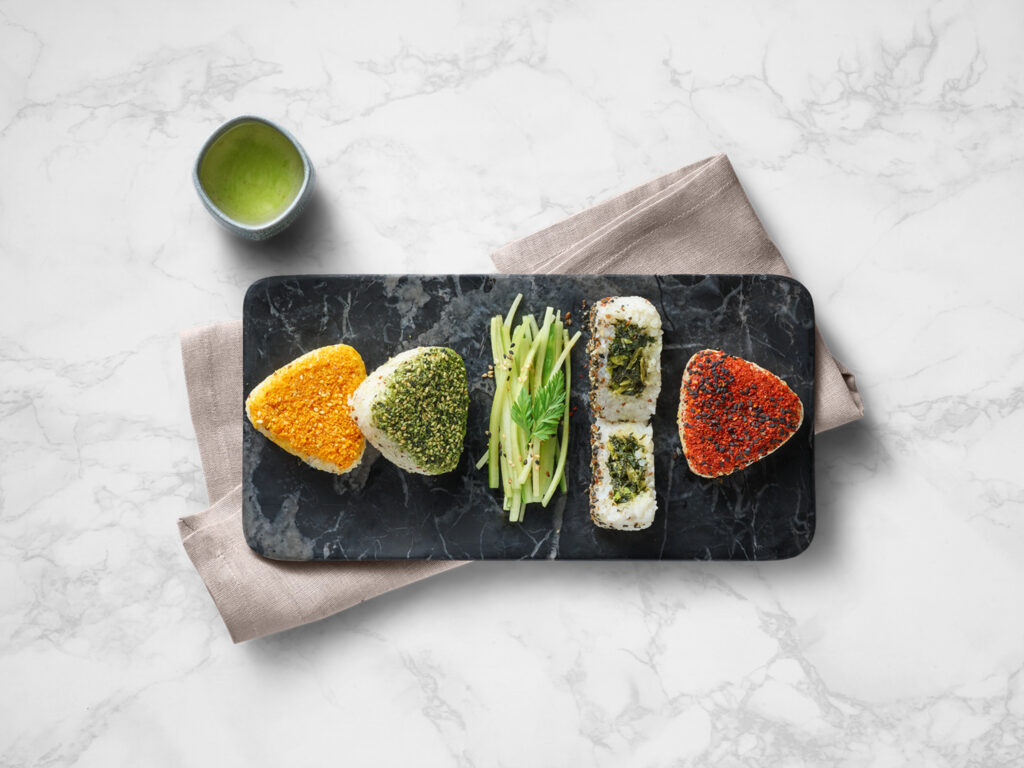
Konscious Foods’ frozen SKUs, meanwhile, will soon be available in the freezer aisles at 4,500 retail locations in Canada and the US, including Wegmans, Sprouts and Albertsons-Safeway, among others. And the brand is present in foodservice too. “We include the retail product in operator-friendly packaging that ensures culinary teams are able to offer on-trend, plant-based solutions to their menus with ease,” says Potvin.
He explains that the company’s lineup is adaptable to multiple foodservice formats, including catering, micro-markets, vending, in-flight service, sushi bars and quick-service restaurants – aided by its konjac-, pea- and rice-based salmon, tuna and ‘sno’ crab. “We also offer foodservice bulk packs of our maki rolls, onigiri stuffed rice snacks and poke bowls that provide ‘thaw and serve’ efficiency, without requiring any additional specialised training,” Potvin says.
Moreover, Konscious Foods is in discussions with foodservice providers across the US and Canada to expand its offering to the catering sector in institutions like schools.
Focusing on health, flavour and the planet
For Potvin, health and taste are equally important – just as they are for American plant-based meat consumers. “To change the way people eat and help people incorporate plant-based into their diets, you can’t just have ‘nutritious’ without ‘taste’, and you can’t just have ‘taste’ without ‘nutritious’ – it won’t work,” he says.
Many of the “high quality, clean” ingredients Konscious Foods uses are grown and processed in Canada, with a focus on non-GMO and organic certifications where possible. Its sushi rice is from California and accredited by the Non-GMO Project, and for its rainbow roll, it uses Organic Latin America rice and Thai Jasberry rice (touted to be one of the world’s healthiest varieties).
Potvin says the company has managed to offer its products at price parity with conventional supermarket sushi: “We know one of the biggest barriers to entry for plant-based food, which is often two or more times more expensive than traditional protein options. By keeping the price on par, we can help bring plant-based products to the masses.”
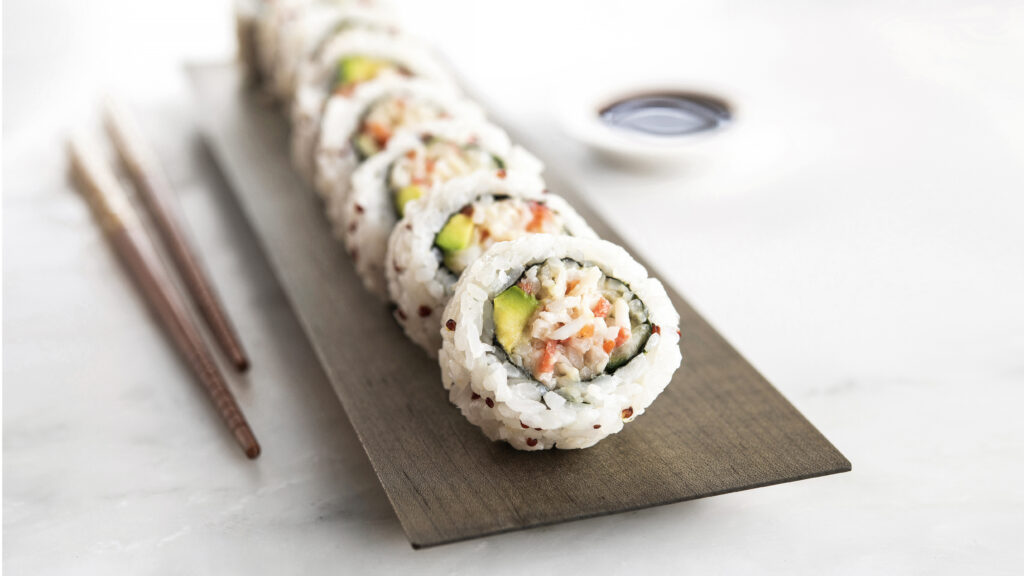
In August, Konscious Foods – which has largely been self-funded, other than receiving government grants – raised $26M in a Series A funding round that included the government-backed Protein Industries Canada, as well as Zynik Capital and Walter Group. The brand has used the cash injection to bolster production, expand its retail and foodservice footprints, and launch marketing initiatives. In addition, Konscious is working on more seafood analogues to expand vertically, with vegan shrimp and smoked salmon top of the list.
Potvin says all three of Konscious Foods’ current product lines have received a great response from consumers with its California roll nabbing the NEXTY Award for Best New Frozen Product at the Expo West trade fair earlier this year. “For me, it has been most rewarding to hear how many people are trying and loving it,” he notes.
Because, as he reiterates: “We are not just about being plant-based – our mission is to make good-for-you, good-for-the-world food that tastes good.”

